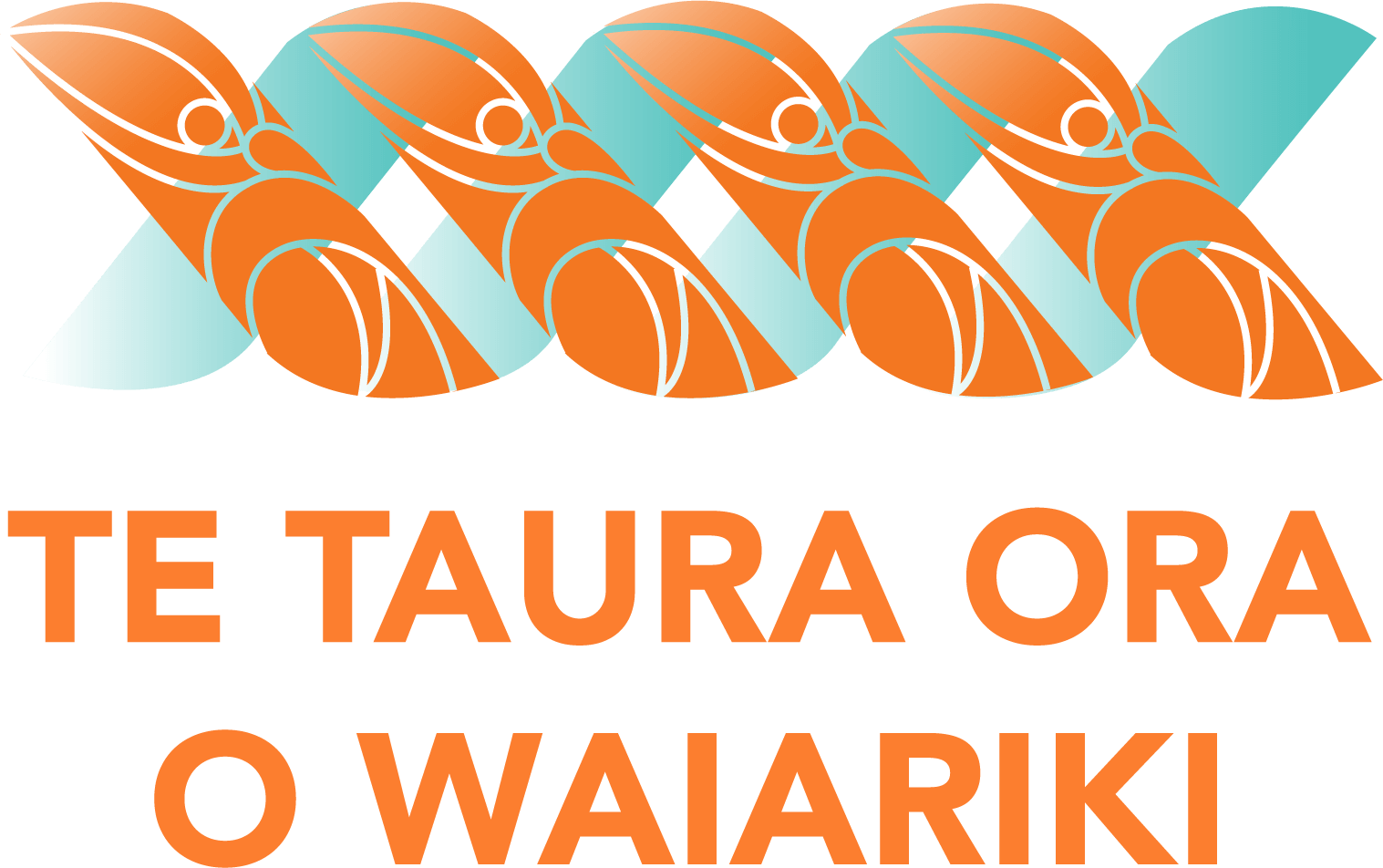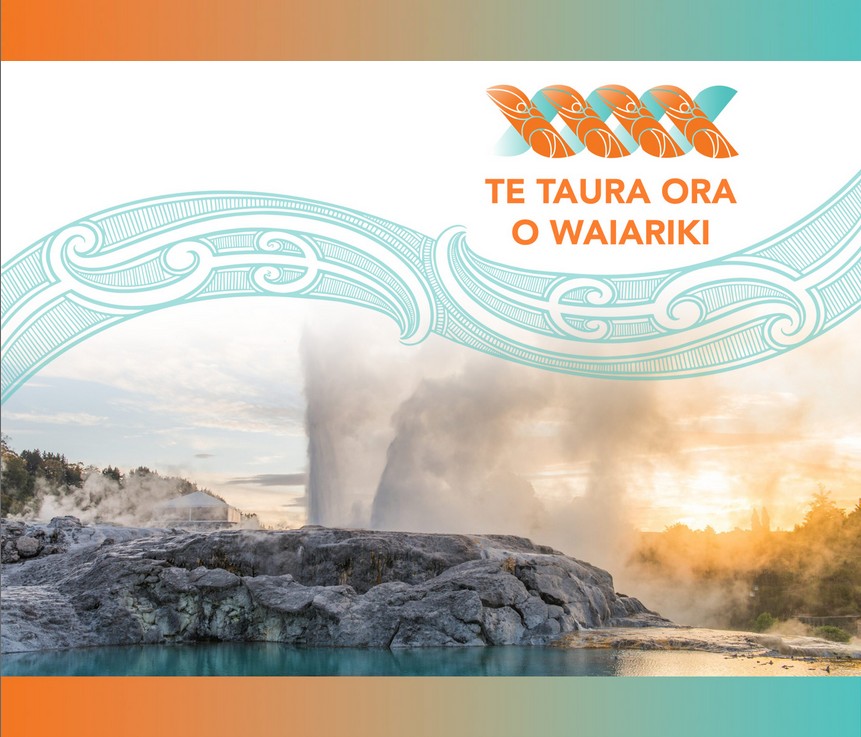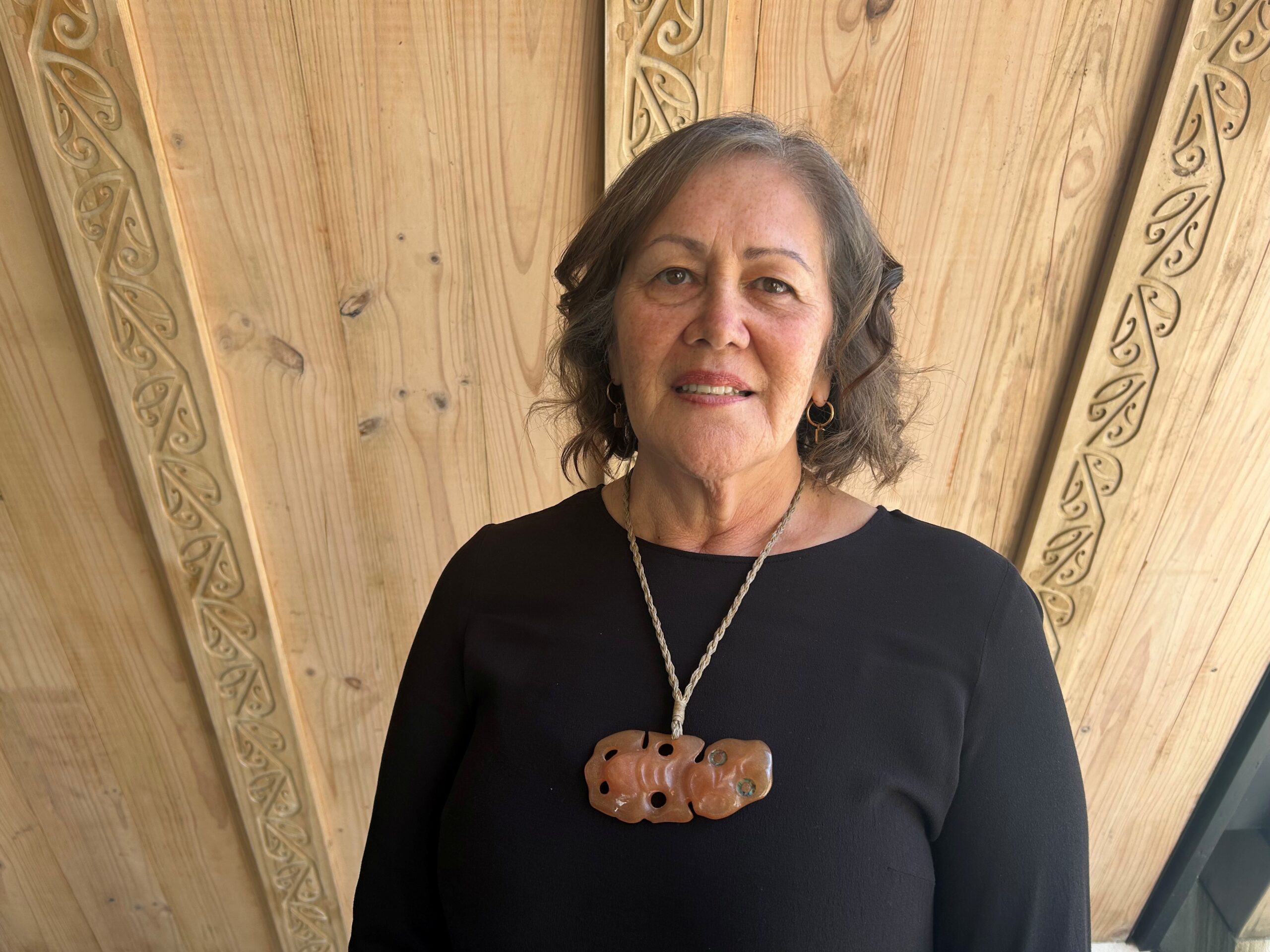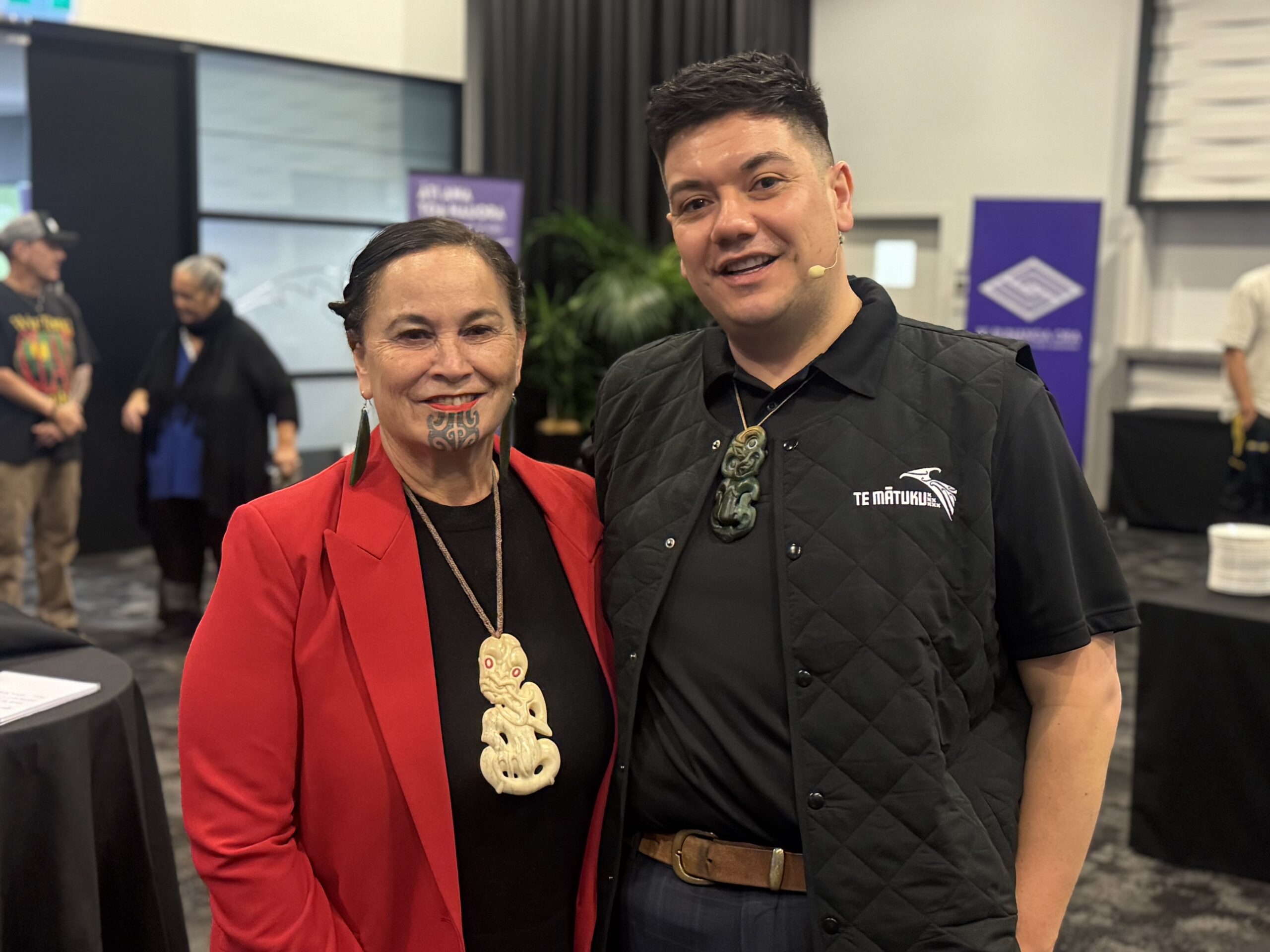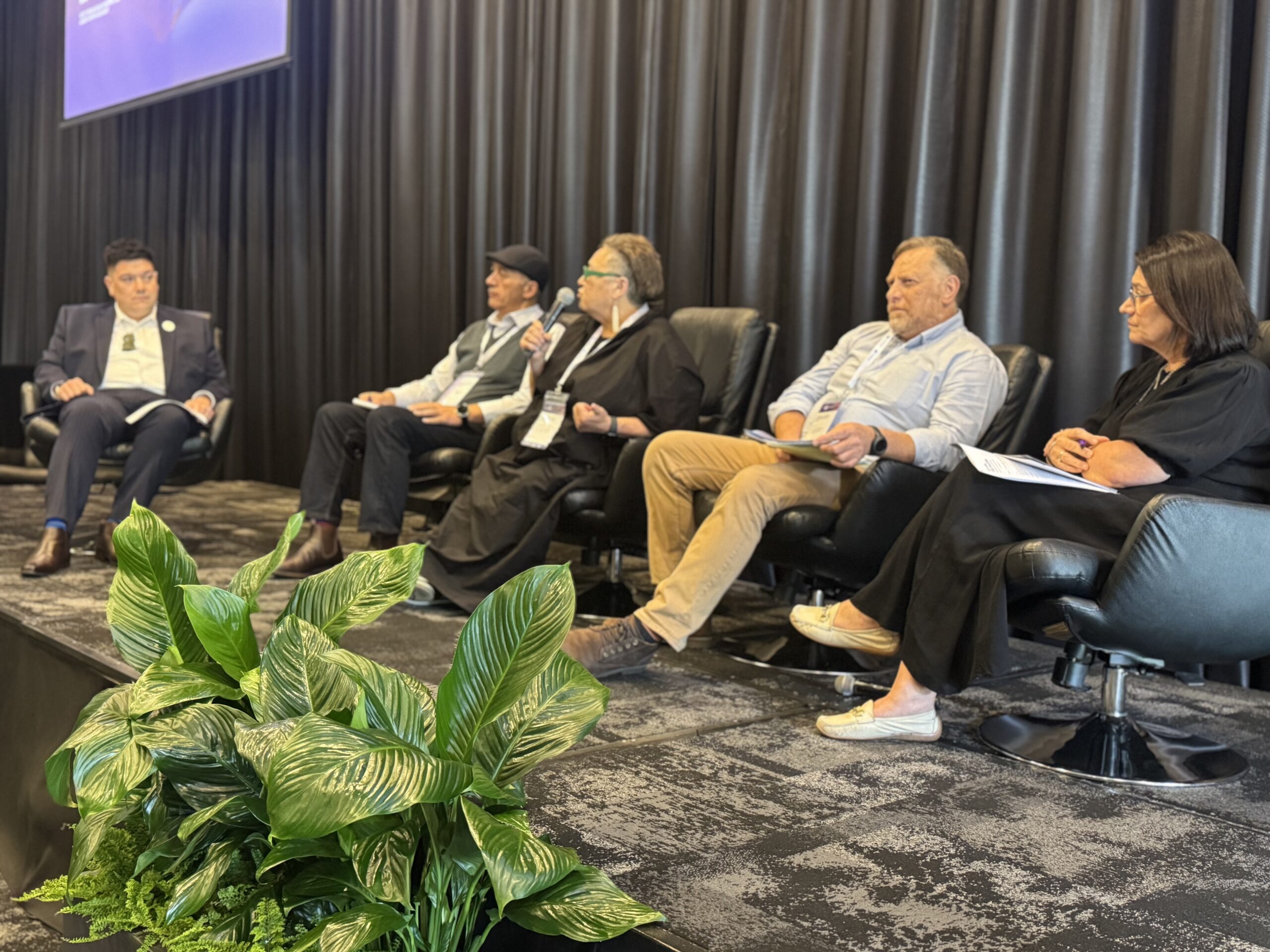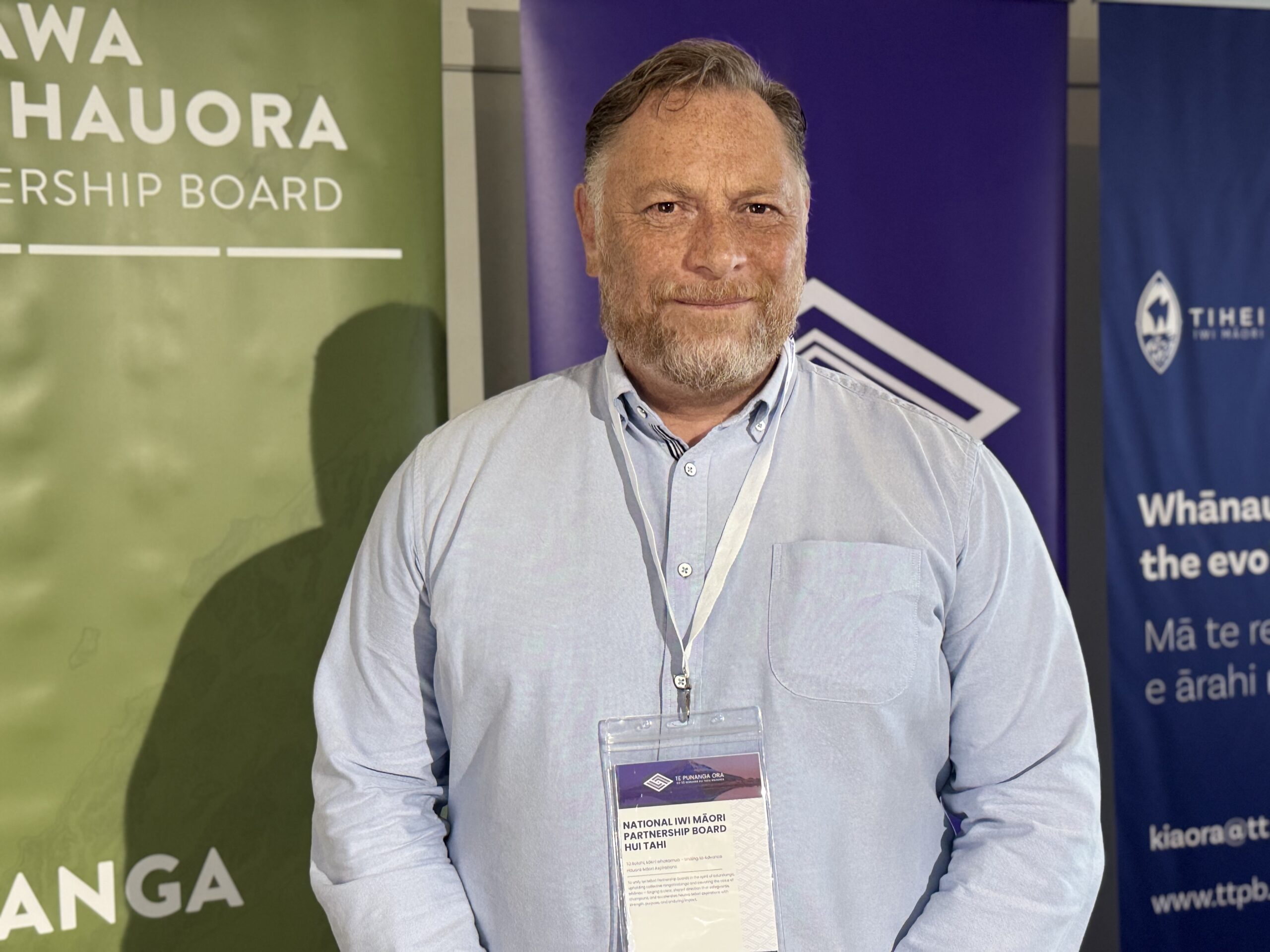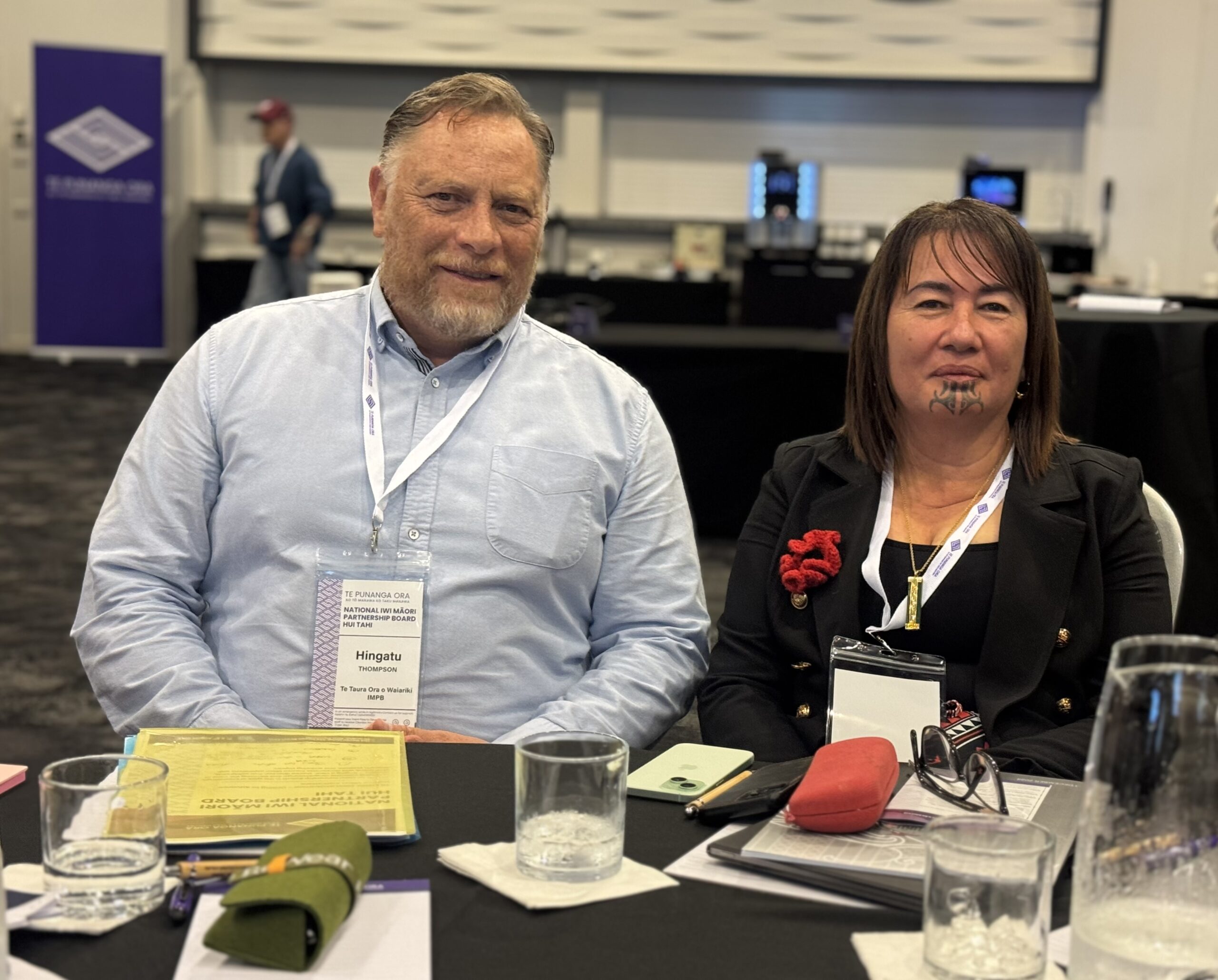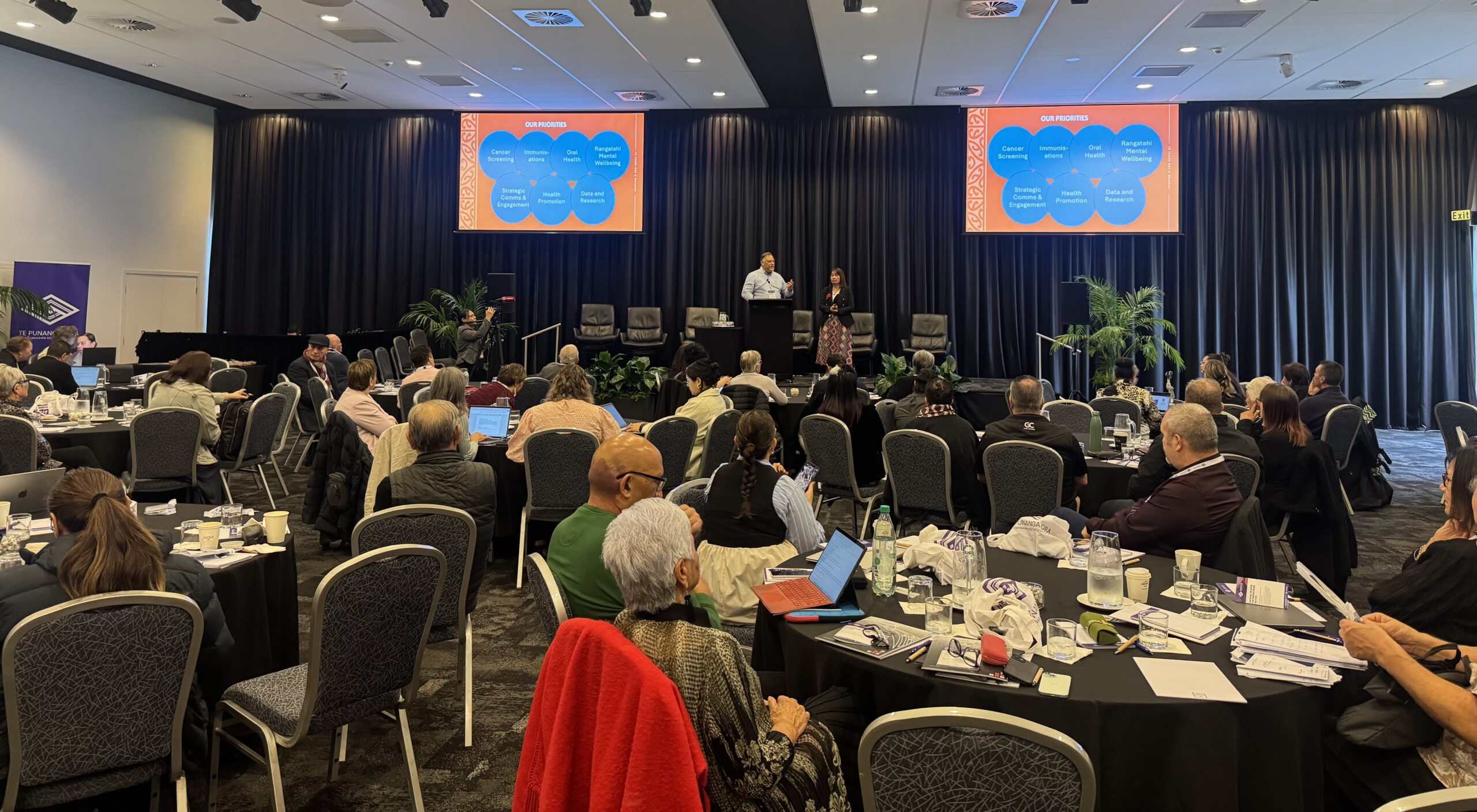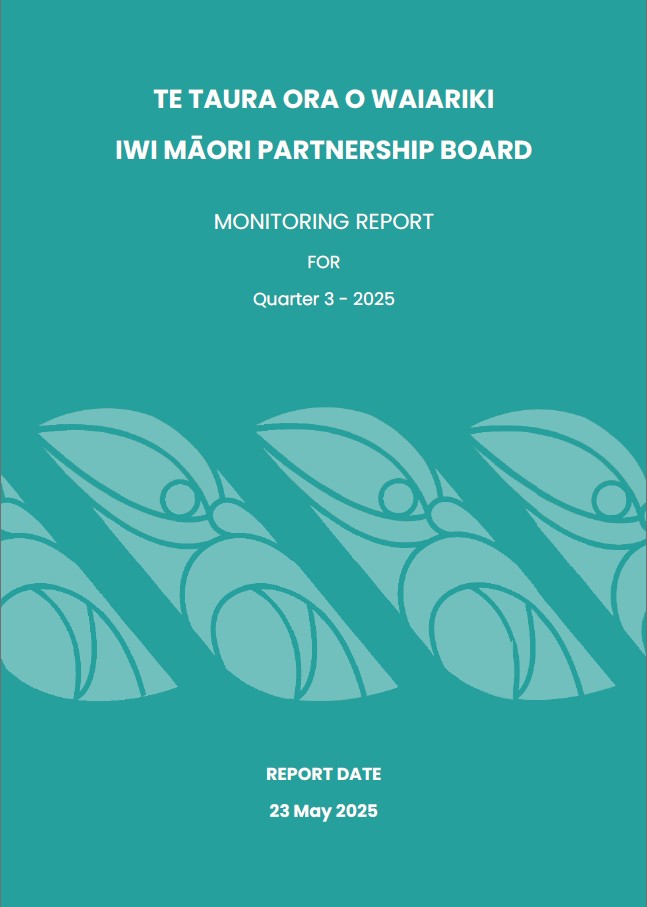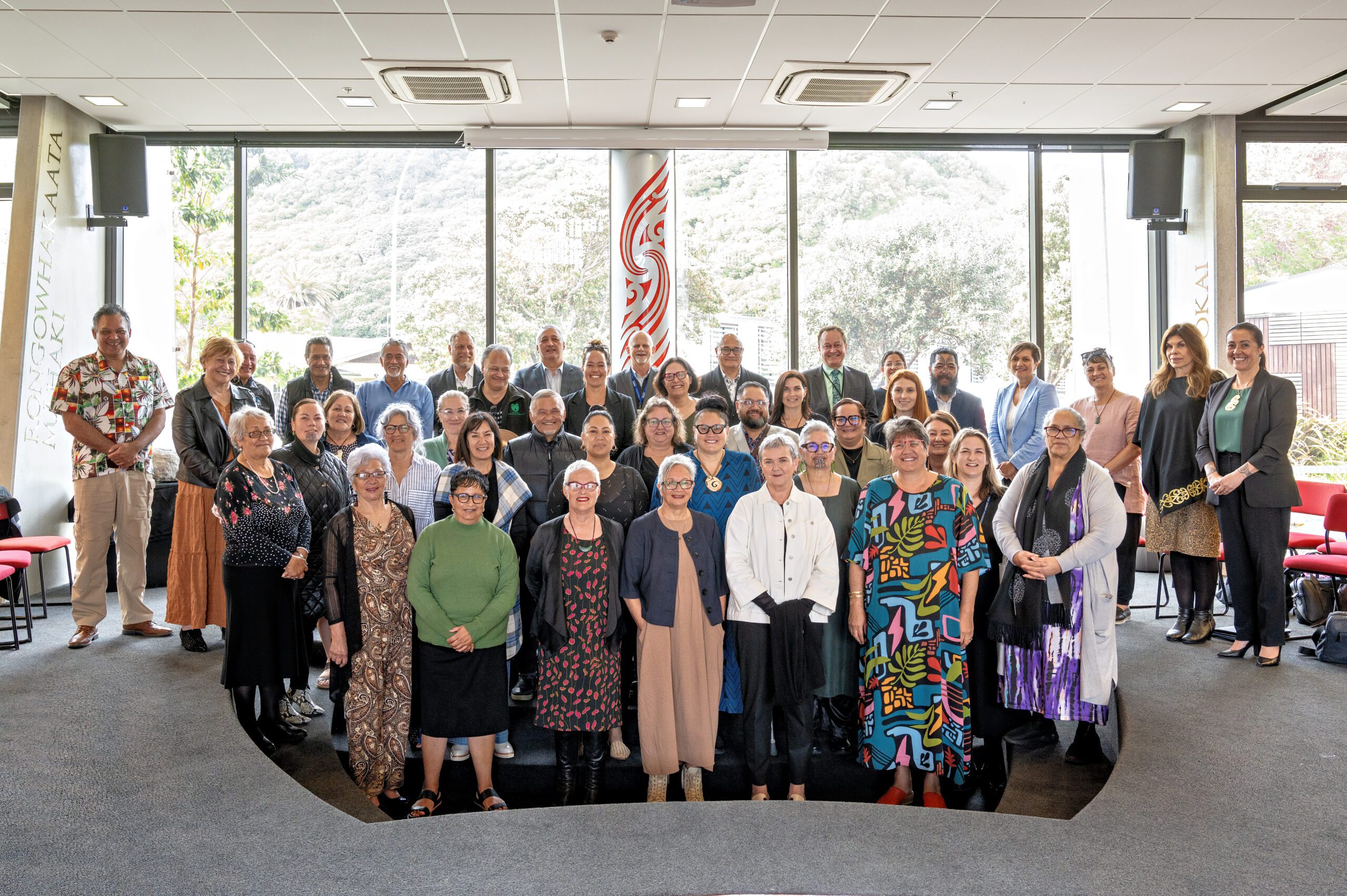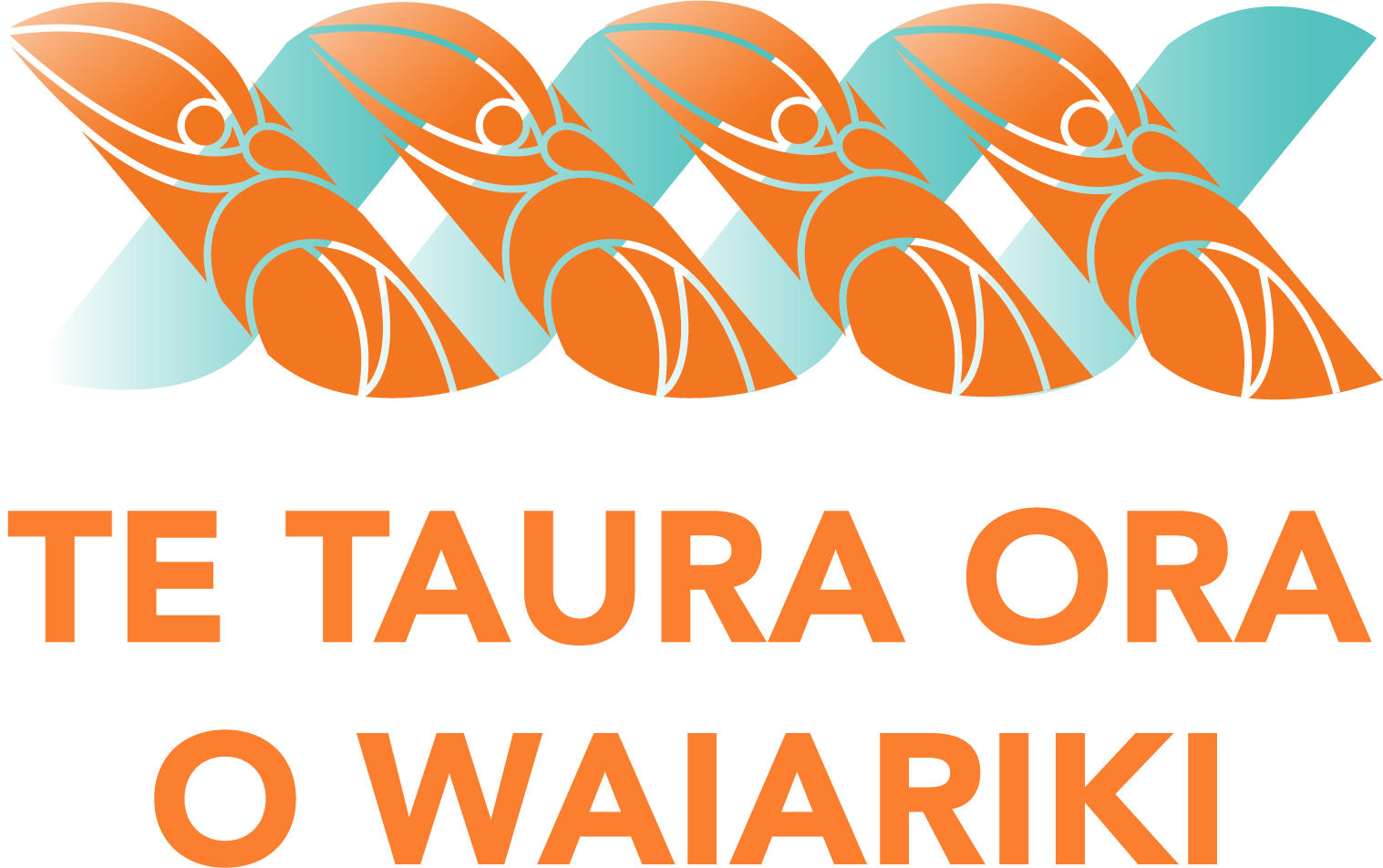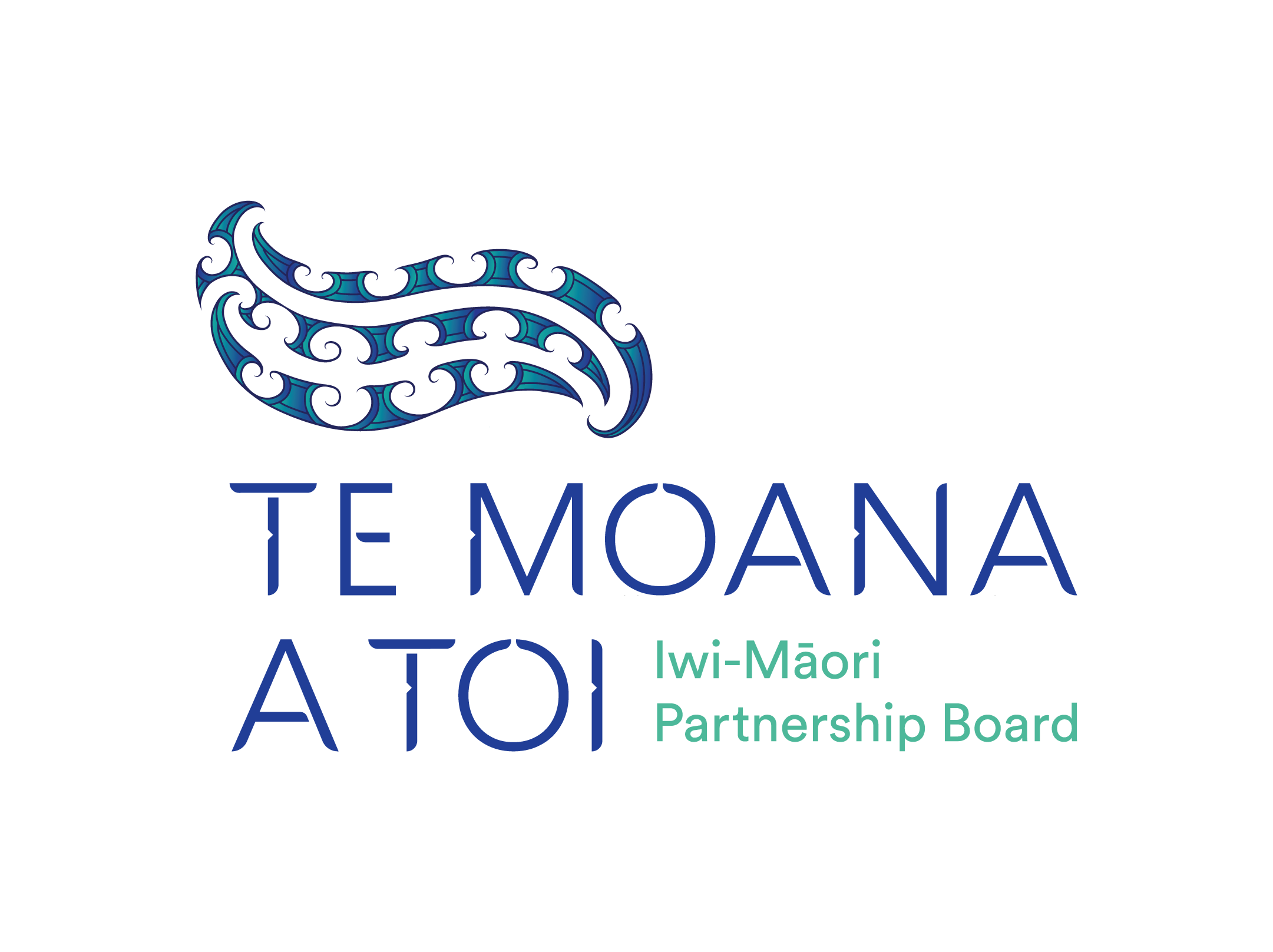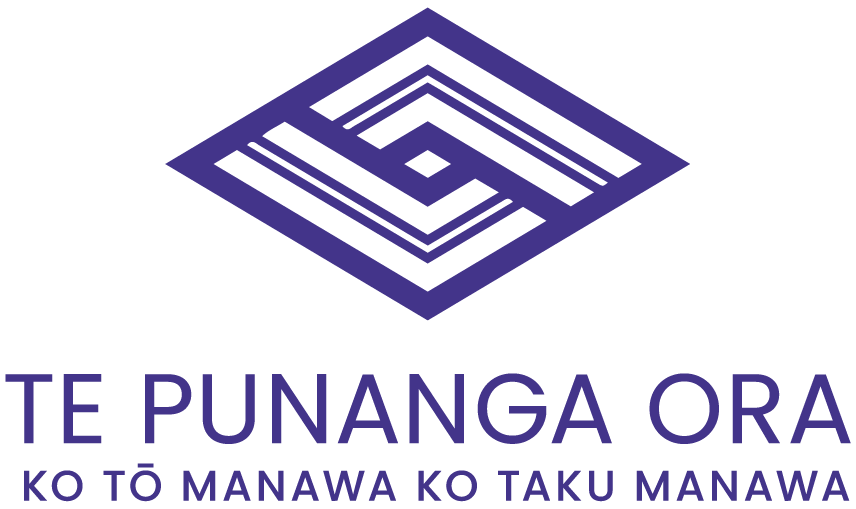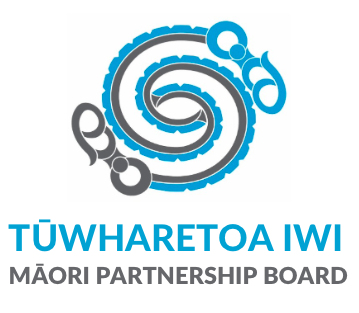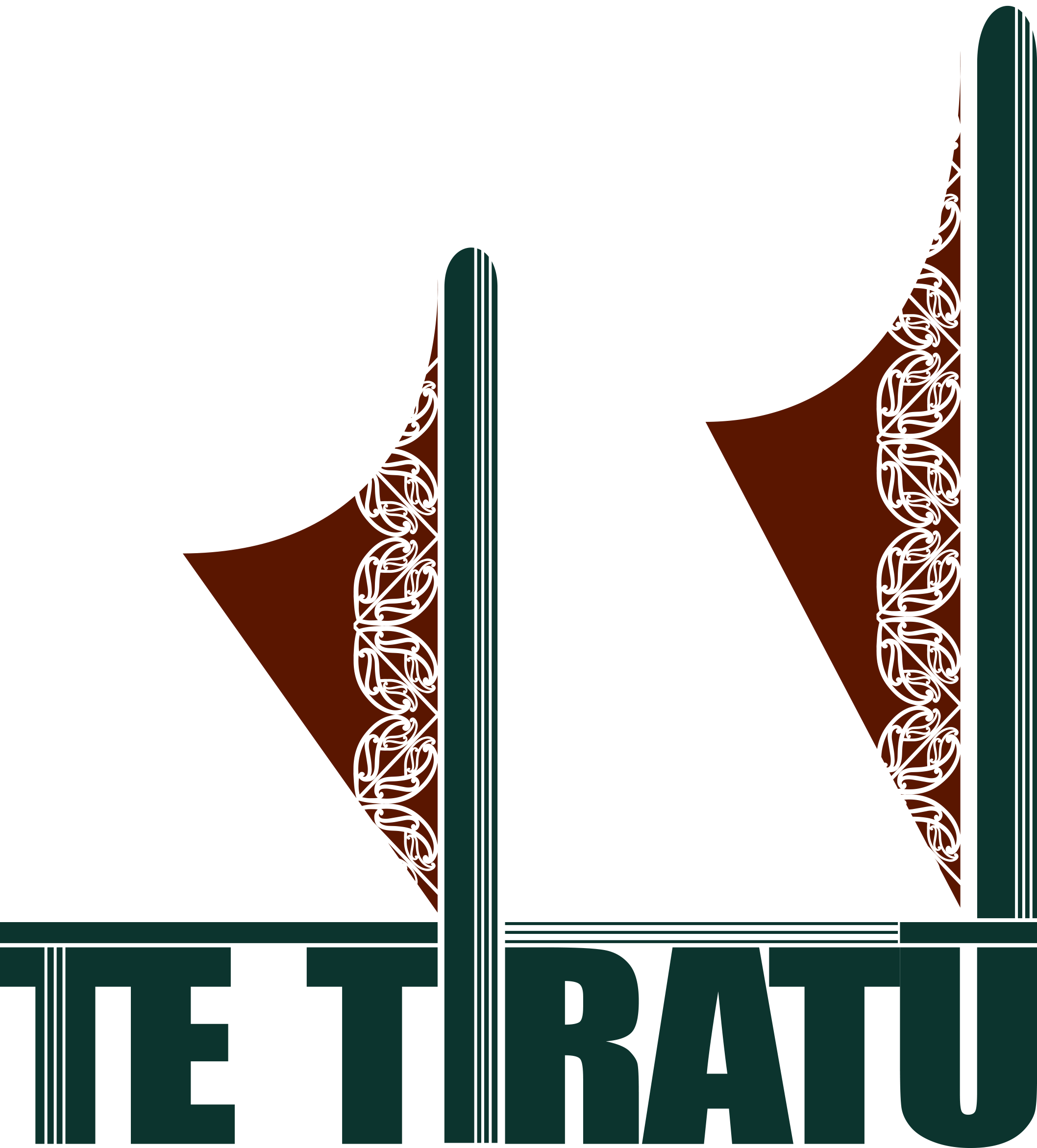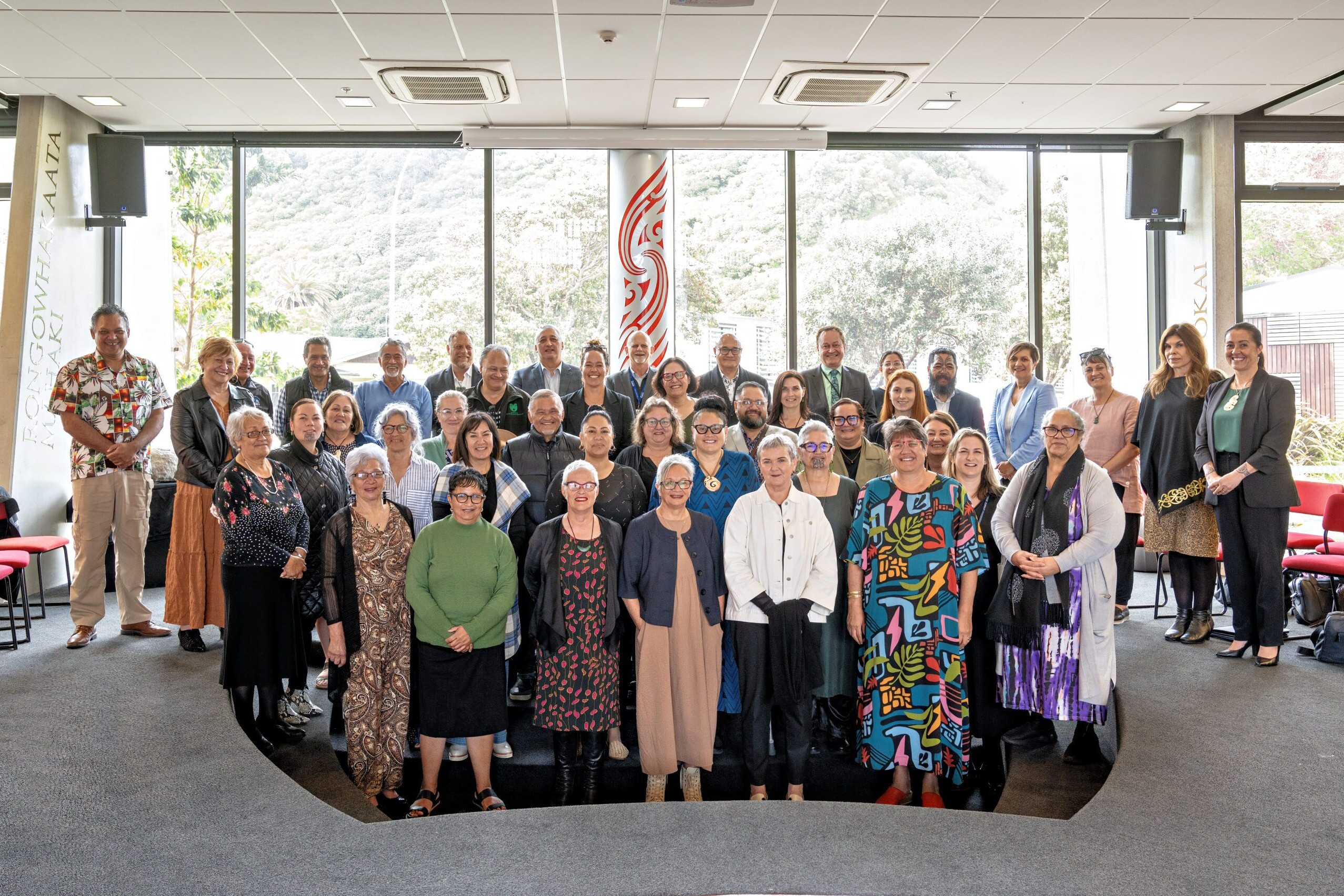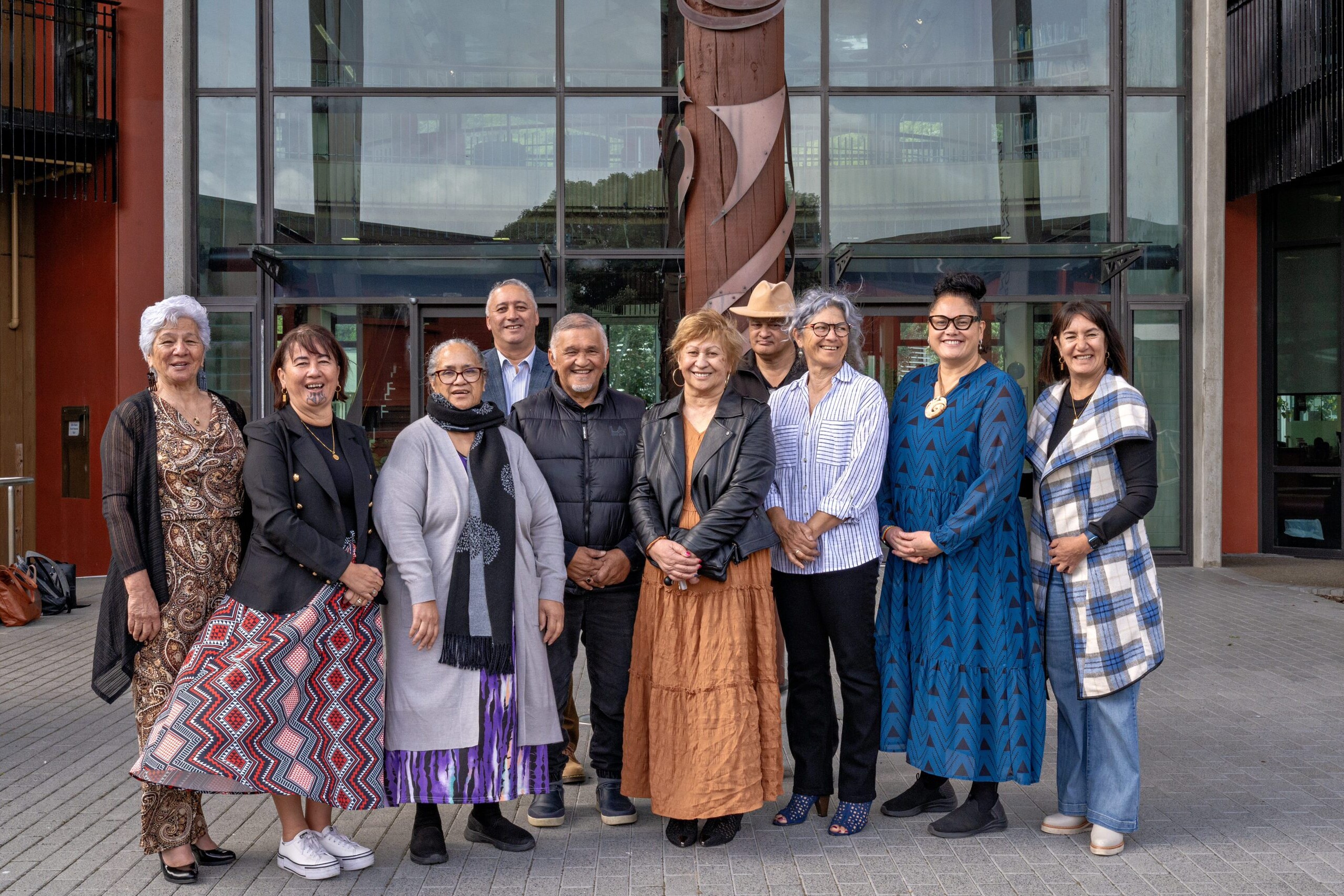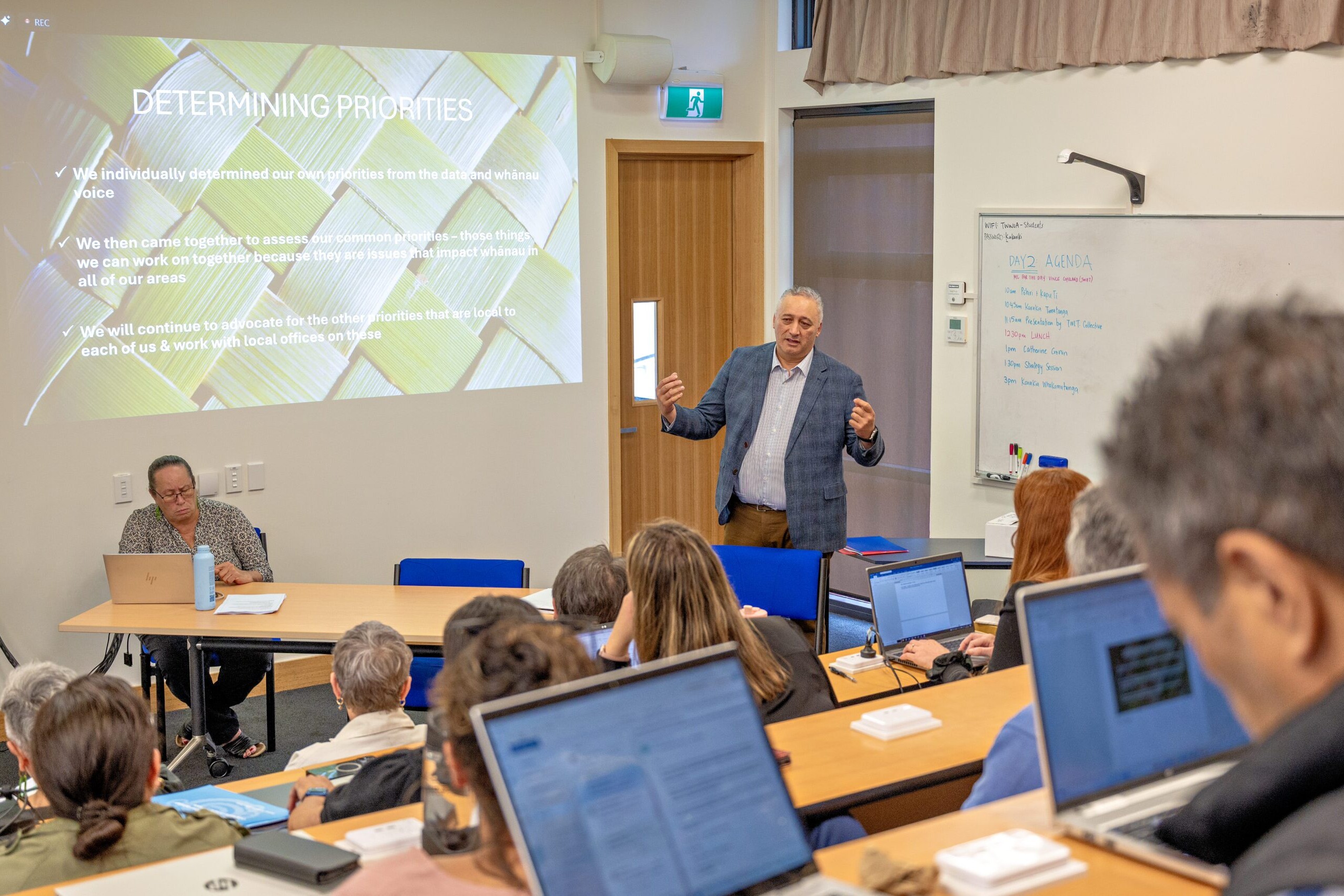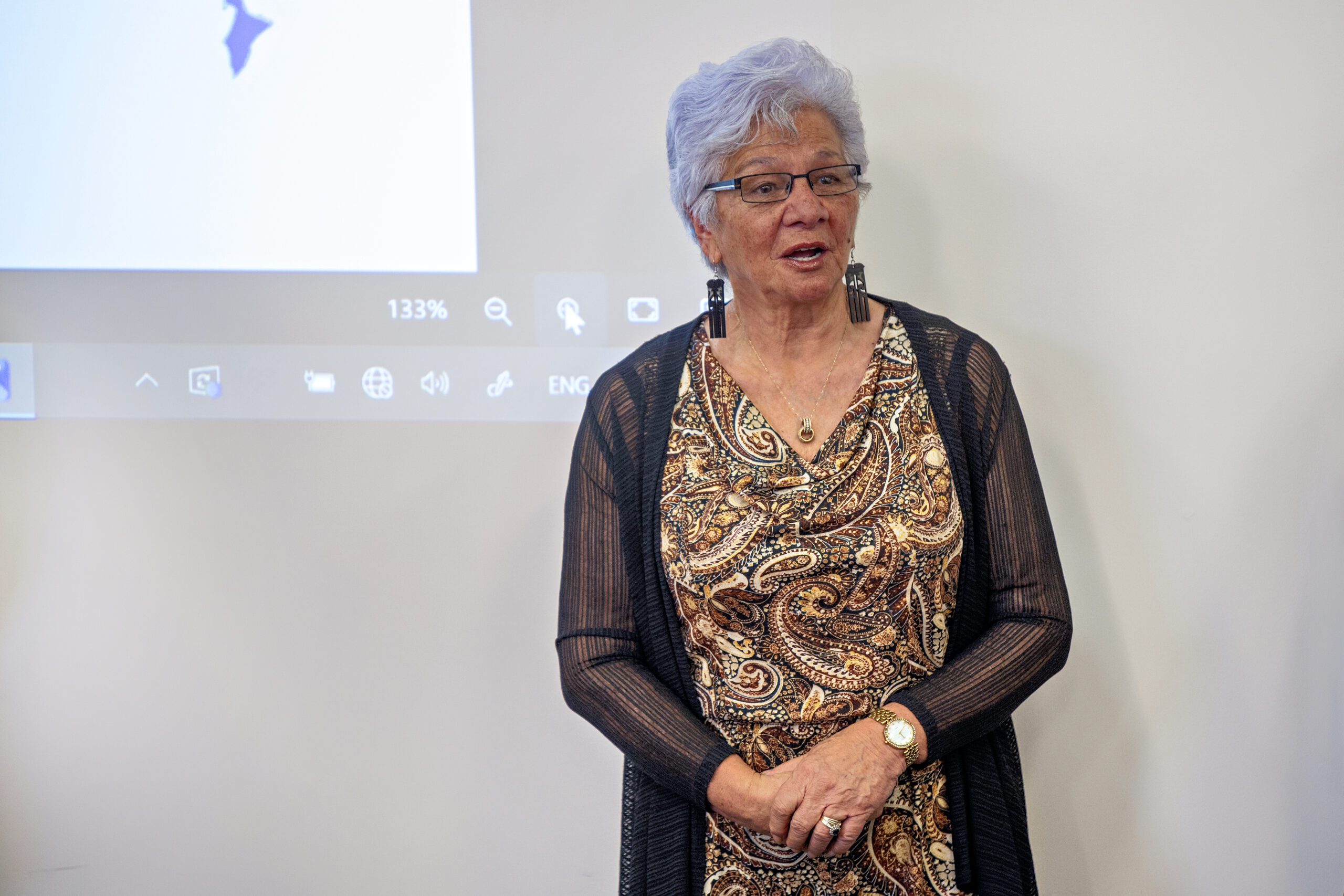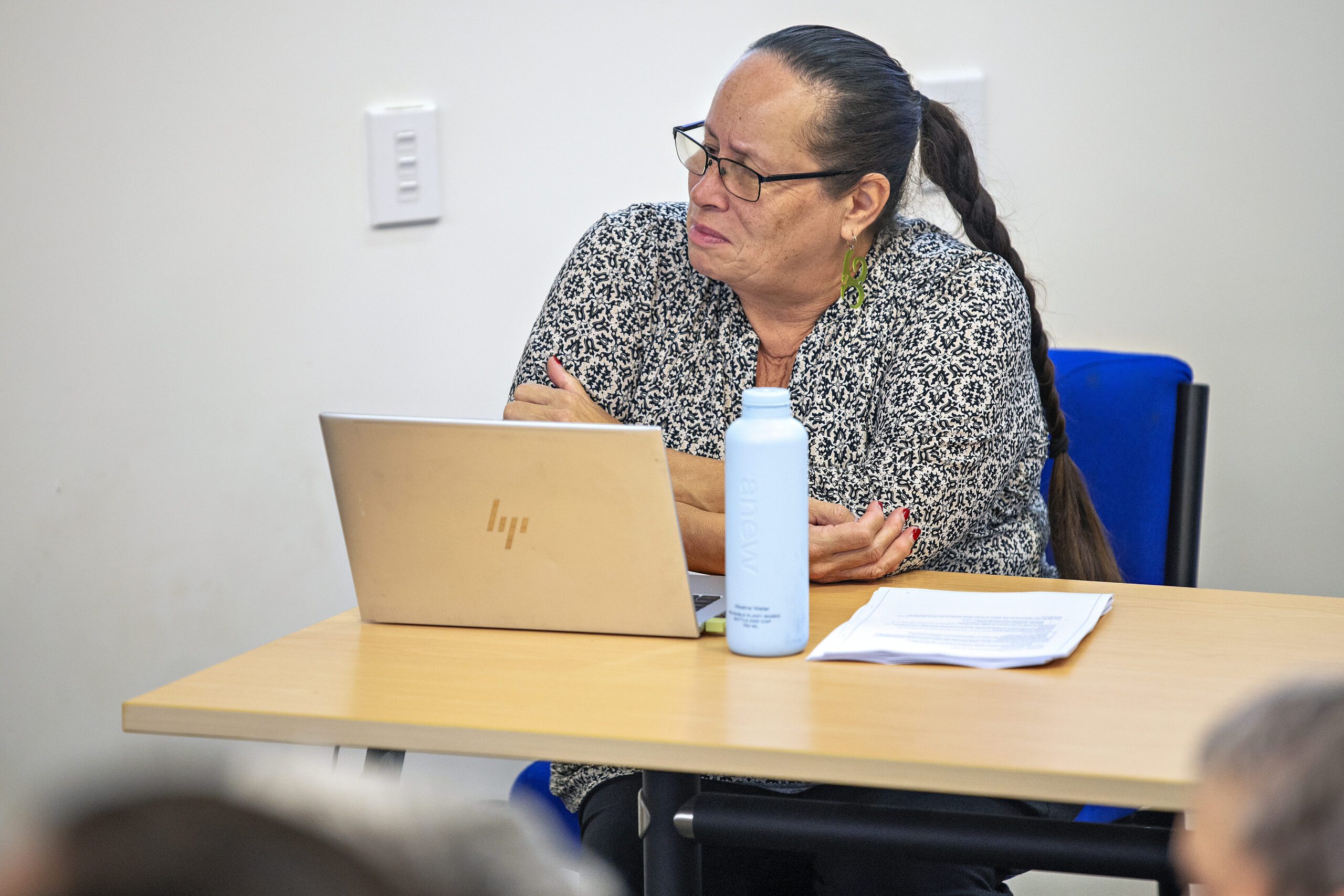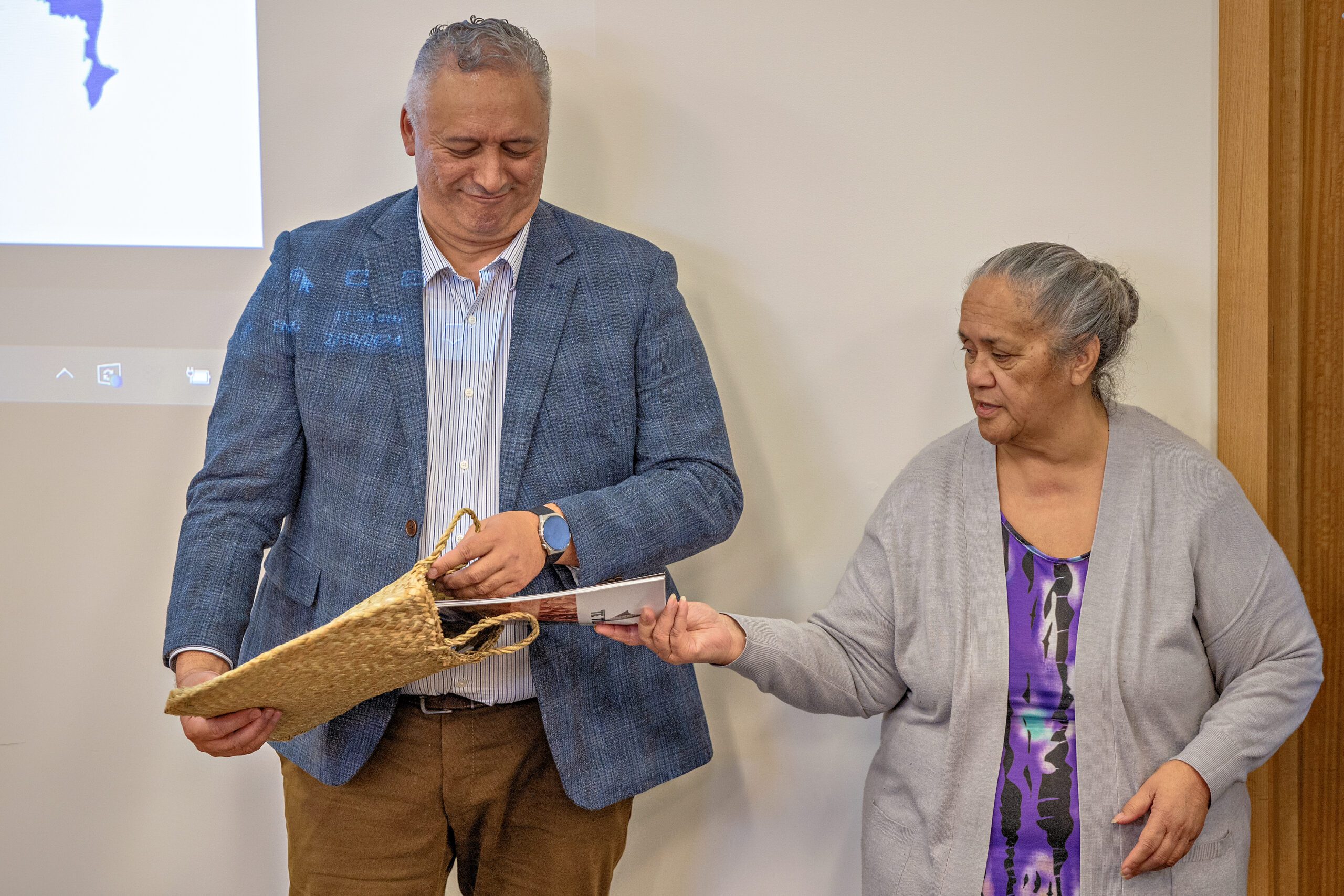Te Taura Ora Slams Pae Ora Bill as Blow to Māori Health Equity
The Deputy Chair of Te Taura Ora o Waiariki says the Government’s proposed Healthy Futures Amendment Bill is a major setback for Māori health.
The bill, introduced in July, would restructure the Pae Ora Act by shifting iwi Māori from decision-makers to advisors, and increasing Health New Zealand’s focus on infrastructure and centralised planning.
Jenny Kaka-Scott says the bill strips away Te Tiriti protections and downgrades iwi partnership boards.
“We shift from being meaningful decision makers to advisers to the minister’s advisors. Advisory only powers mean that our advice can be ignored, whereas the statutory power ensures our iwi voices have to be factored into that decision making, and without that, you know, Māori will remain consulted, but excluded,” says Kaka-Scott.
Kaka-Scott says the changes risk worsening inequities in regions like Waiariki, where suicide rates are high and life expectancy is low.
She’s calling for the bill to be scrapped or rewritten to uphold Māori-led solutions.
Original Article: https://waateanews.com/2025/09/03/te-taura-ora-slams-pae-ora-bill-as-blow-to-maori-health-equity/
Te Taura Ora IMPB Oral Submission
Deputy Chairperson Jenny Kaka-Scott presented the Te Taura Ora oral submission to Subcommittee A, chaired by Sam Uffindell, with members Dr Carlos Cheung, Cameron Luxton, Hūhana Lyndon, and Debbie Ngarewa-Packer.
Te Taura Ora IMPB Warns Pae Ora Bill Worsens Inequities Urges Abandonment
Te Taura Ora o Waiariki, the Iwi Māori Partnership Board (IMPB), will make a formal submission before Parliament’s Select Committee on Tuesday 2 September at 9:50am on the Pae Ora Bill. Deputy Chairperson Jenny Kaka-Scott will present to Subcommittee A, chaired by Sam Uffindell, with members Dr Carlos Cheung, Cameron Luxton, Hūhana Lyndon, and Debbie Ngarewa-Packer.
“This Bill undermines the principles of Te Tiriti o Waitangi by stripping away statutory protections that give Māori genuine influence in health service design and delivery decisions impacting our people,” Jenny Kaka-Scott said.
Te Taura Ora o Waiariki opposes the Healthy Futures (Pae Ora) Amendment Bill because it reduces Māori from being meaningful decision-makers to advisors to the Minister’s advisors, which represents a constitutional regression.
“The Pae Ora Act 2022 is one of the few modern health laws that truly embeds Te Tiriti into governance, service design, and monitoring, and the proposed amendments would weaken those protections nationwide.”
She said that IMPBs must be strengthened to maintain statutory authority to monitor the health sector independently, partner in local service design and delivery, and hold the power to appoint a majority of Hauora Māori Advisory Committee members who are accountable to iwi.
“This ensures real influence over our local health services, rather than tokenistic consultation. Weakening IMPBs also undermines Crown credibility, Tiriti compliance, and accountability in Māori health,” she said.
Kaka-Scott said the Bill also risks dismantling mechanisms that are already delivering positive outcomes for Māori. Te Taura is one of 15 IMPBs operating across Aotearoa, providing a vehicle for rangatiratanga in health. Removing their statutory functions would undermine these proven approaches and weaken local voices in health planning.
“In our Te Arawa rohe, Te Taura Ora o Waiariki has successfully partnered with Rotorua Hospital, local PHOs, Hauora Māori providers, Bay of Plenty Public Health, and community leaders to embed local priorities into Regional Health and Wellbeing Plans. Our partnerships demonstrate how IMPBs improve outcomes on the ground through genuine Te Tiriti-based engagement and co-design.”
These local successes highlight what is at stake, as the Bill’s proposed changes risk undermining the very mechanisms that are improving Māori health outcomes and addressing persistent inequities in Te Arawa.
“Evidence shows that Māori continue to experience shorter life expectancy and higher rates of preventable hospitalisations. By removing mandatory engagement, cultural responsiveness, and independent monitoring, the Bill would reduce culturally safe care, allow inequities to go unreported, and impose one-size-fits-all universalism solutions that fail to meet local Māori needs,” Kaka-Scott said.
Te Taura Ora o Waiariki is calling on Parliament to abandon the Bill or at worst, redraft it to retain and strengthen statutory Te Tiriti protections, IMPB powers, and co-design mechanisms. Until such changes are made, the Pae Ora Act 2022 remains in force, and Te Whatu Ora Health NZ must fully comply with its current statutory requirements.
Media Liaison: Sarah Sparks Email: Sarah.sparks@sparksconsulting.co.nz Mobile: 021318813
15 Iwi Māori Partnership Boards sign collective submission on the Healthy Futures (Pae Ora) Amendment Bill
History has been made. All 15 Iwi Māori Partnership Boards (IMPBs) across Aotearoa spanning from Te Tai Tokerau down to Te Waipounamu, have worked together to review, provide feedback, and endorse a united submission on the Healthy Futures (Pae Ora) Amendment Bill. While IMPB’s have collaborated on many kaupapa before, this milestone cements their combined impact and influence at the national level.
This follows the National IMPB Hui held in Taranaki earlier this month. It was there that momentum was galvanised, and the respective boards committed to continue moving as one voice.
“This is a historic moment,” says Kandi Ngataki, Chair of Ngaa Pou Hauora oo Taamaki Makaurau.
“Fifteen Boards, representing iwi and whānau from every rohe in the country, are standing as one. It is kotahitanga in action, Te Tiriti-centred, a united voice coupled with a firm commitment to shaping the future for whānau.”
The submission itself makes clear that IMPB’s do not support any changes to the Pae Ora (Healthy Futures) Act 2022 that weaken obligations to Te Tiriti. IMPB boards are particularly concerned about the repeal of sections that remove the statutory obligation of Te Whatu Ora to engage with and be accountable to Iwi, and provisions that undermine Māori authority over matters affecting hauora Māori.
The collective IMPB submission has been officially lodged to the Healthy Futures (Pae Ora) Amendment Bill Committee.
He waka eke noa.
For media enquiries, please contact:
Simon Royal (Te Whānau A Haunui)
021 400 548
Proposed Pae Ora Bill Sparks Concern as Local Iwi Māori Partnership Board Warns of Silenced Māori Voices
Te Taura Ora o Waiariki, the Iwi Māori Partnership Board (IMPB) has just returned from a landmark national hui in New Plymouth, where 15 Iwi Māori Partnership Boards united to oppose government plans that threaten to silence Māori voices and weaken decades of hard-won health partnerships guaranteed under Te Tiriti o Waitangi.
“What we’ve learned is the public health system is actually not doing really well for our people, and we have known this for many years,” said Te Taura Ora Chair, Hingatu Thompson.
The first monitoring report released by Te Taura Ora o Waiariki IMPB revealed critical gaps in prevention and access for Māori in Te Arawa, highlighting low cancer screening rates and the country’s lowest child immunisation coverage, underscoring the urgent need for greater investment in Māori-led health solutions.
“What was encouraging with the original Pae Ora Act was that mana returned to Te Arawa to take control, to analyse data ourselves with our Whānau Voice surveying that gathers our own information from whānau our rohe to influence priorities.”
“However, now the government’s proposed changes in the Pae Ora Bill threaten to remove iwi’s meaningful participation and advice on the future of hauora for our people.”
Thompson said Te Arawa has maintained strong hauora partnerships across successive governments and will continue to do so. However, the proposed legislation risks sidelining iwi voices by channelling feedback primarily through the Minister-appointed Hauora Māori Advisory Committee (HMAC) which lacks representation from Waiariki, instead of empowering locally appointed Iwi Māori Partnership Boards to engage directly at regional and community levels, where real, meaningful change occurs.
“As Iwi Māori Partnership Boards, we have unique regional and local priorities and accountability to our whānau at home. We must work directly with Te Whatu Ora Health New Zealand at these levels to influence how services are delivered, who delivers them, and ultimately to achieve better outcomes for Māori in our rohe. The government’s talk of ‘streamlining’ feels like a convenient way to reduce Māori engagement,” Thompson said.
Te Taura Ora o Waiariki IMPB strongly supports:
- Retaining and clarifying the accountability of HMAC to iwi Māori through IMPBs.
- Strengthening IMPB roles to provide regional and local advice to Te Whatu Ora Health New Zealand.
- Developing new health strategies with specific actions to improve Māori health outcomes.
- Opposing any amendments to the Pae Ora Act that weaken or replace the principles of Te Tiriti o Waitangi.
“The government’s own analysis shows these changes will have minimal positive impact on Māori health outcomes, yet they risk diminishing Māori involvement. We firmly believe that continuing and enhancing the current partnership model will lead to genuine improvements and reduced inequities.”
“While that national hui is only the beginning of a national conversation, common themes are emerging, iwi and IMPBs do not support these proposed changes and question their necessity.”
“We are committed to working together nationally to form a single, strong voice, but improving life expectancy, child immunisation rates, accessibility to health delivery services locally and regionally is where we need to make the ultimate progress.”
Each IMPB, including Te Taura Ora o Waiariki, will submit their own detailed submission to the Health Committee on the proposed legislation by 18 August. Thompson intends to present in person to the select committee on behalf of whānau in Waiariki.
Media Liaison: Sarah Sparks
Email: Sarah.sparks@sparksconsulting.co.nz
Mobile: 021318813
See the photo gallery below for a snapshot of the conference.
Monitoring Report #1
Under Section 30(1) of the Pae Ora Act 2022, Iwi-Māori Partnership Boards (IMPBs) are tasked with monitoring the performance of the health sector within their rohe. These quarterly monitoring reports represent Te Taura Ora o Waiariki’s commitment to that role – ensuring accountability, equity, and tangata whenua perspectives are embedded in the health system.
This first report outlines the foundations of our monitoring approach:
- How we define the health sector in a Waiariki context
- The phased introduction of our monitoring work
- The performance indicators we have selected
- And the results of monitoring for the most recent quarter
These reports are a key tool in our ongoing mahi to strengthen whānau wellbeing, highlight disparities, and guide transformation through a kaupapa Māori lens. As the reporting series continues, we will build on these insights to ensure that the voices of our people are not only heard – but drive real change.
To download the PDF, click on the three dots ⋯ and select “Download PDF File.”
Milestone for Iwi Māori Partnership Boards

Health Minister Dr Shane Reti says Iwi Māori Partnership Boards have taken a major step as part of the Government’s commitment to the health of Māori communities.
Minister Reti has now received 15 IMPB community health plans, representing the vision and plans of the boards for health and wellbeing in communities throughout New Zealand.
“Receiving these plans is a hugely significant milestone in implementing my long-term vision for Māori health,” says Dr Reti.
“Having all 15 recognised IMPBs on board with their planning marks a pivotal step in ensuring health services identify and act on the actual needs and priorities of Māori communities.
“Development of the plans not only underscores the professionalism of the IMPBs in delivering them, but the content will also align and inform around key Government health targets, and in ensuring a Māori voice is heard in health.
“These are localised rather than bureaucratised plans, providing crucial insights into health priorities for actual populations. From here, they will also ensure local voices are heard and integrated into our broader health strategy
“These plans are not just documents. they are living frameworks to guide our efforts to better address specific health challenges faced by Māori communities.
“Their prioritisation of local needs means agencies can take meaningful steps towards reducing actual health inequities. Through engagement with local whānau, IMPBs have been able to identify specific priorities and actions in addition to the Government’s overarching health targets.
“Examples of these priorities include access to oral health care, suicide prevention and growing the Māori health workforce.
“The Ministry of Health – Manatū Hauora, Health New Zealand – Te Whatu Ora and Iwi Māori Partnership Boards will now work cohesively to finalise the plans, support the relevant IMPBs, and begin implementation over the next three to five years.
“The plans will become the base for IMPBs being able to act on their strategic commissioning role, however it remains important to recognise that each IMPB is currently at a different level of capacity for delivery.
“This year’s 2024/25 budget increase of an additional $40 million per annum through Health NZ will contribute to addressing hauora Māori provider inflation pressures and continued service provision to Māori communities.
“I look forward to the positive impact these plans will have on the health priorities of Māori communities and the ongoing collaboration with all stakeholders to achieve our shared goals,” Dr Reti says.
Once finalised, the Community Health Plans will be published on the IMPB and Health New Zealand websites.
Original Article posted on the Beehive Website: https://www.beehive.govt.nz/release/milestone-iwi-m%C4%81ori-partnership-boards
Iwi Māori Partnership Boards Unite in Whakatāne to Lead Regional Health Planning
Iwi Māori Partnership Boards Unite in Whakatāne to Lead Regional Health Planning: Unveiling Community Health Plans & Hauora Māori Priorities
A third of the Iwi Māori Partnership Boards including five from the Te Manawa Taki region have united in Whakatāne to present their Community Health Plans to government officials, fulfilling their legislated function on behalf of Iwi, hapū, and whānau.
As part of the reset of Te Whatu Ora Health New Zealand, Newly appointed Deputy CE and Regional Director, Catherine Cronin received the Community Health Plans and Hauora Māori Priority Reports highlighting Whānau Voices.
This information was gathered from whānau, hapū and hapori to shape individual IMPB priorities and consolidated into regional priorities to tackle the ‘grim picture’[1] of the state of Māori-health.
“The purpose of our collective is to mahi tahi – to work together- to achieve the health and wellness aspirations of our whānau,” said Kataraina Hodge, Co-Chair of Te Tiratū IMPB.
Collectively, the 6 boards serve a combined Māori population of 285,560.
“Our role is not only integral, but fundamental to the success of Te Whatu Ora Health New Zealand and the system’s responsiveness to Māori health needs,” said Louisa Wall, Chair of Tūwharetoa IMPB.
The IMPB are responsible for assessing, monitoring, planning and represent local Māori perspectives on the design and delivery of services and public health interventions within localities.[2]
Their shared priorities focus on public and population health, primary and community care, hospital and specialist services and priorities, workforce, data and funding appropriation for a redesigned delivery model.
“We are all experiencing the same levels of high health need for our whānau so the strategic emphasis into the prevention and health promotion space is essential to make meaningful progress,” Hodge said.
Each IMPB collected the voices of whānau through workshops and surveys, blending these insights with data from Te Whatu Ora and Primary Health Organisations to develop comprehensive, evidenced-based reports for each rohe.
This effort upholds the IMPB’s statutory responsibility in their relevant localities.
The Boards have aligned around regional strategies and delivered all key documents within Minister Reti’s expected timelines—most significantly, meeting the 30 September deadline to be ready for co-commissioning opportunities from 1 January 2025.
“Today is another important milestone in achieving our moemoeā (vision) for our whānau. We are actively participating in shaping regional health priorities that we expect will influence funding based on need ahead of the 2025 Budget,” said Aroha Morgan, Co-Chair of Te Taura Ora o Waiariki IMPB.
One critical task ahead is addressing the status of legacy contracts for Māori Providers – to maintain continuity and capacity in the system – which have been extended until 30 June next year.
“We strongly advocate for evergreen contracts for our providers, given the urgent state of our health needs. At every opportunity, we’ve made it clear to politicians and officials: contracts for Māori health providers must be extended and prioritised,” said Rutu Maxwell-Swinton, Co-Chair of Te Moana a Toi IMPB.
The hui was hosted at Te Whare Wānanga o Awanuiārangi, a Ngāti Awa-founded tertiary provider known for its essential role in training and developing the Hauora Māori workforce. The Boards expressed deep appreciation to the Wānanga for providing the venue for this important briefing.
“Since our establishment, we’ve been following our statutory responsibilities to ensure that we have robust governance structures and operational capability,” one Board member explained.
“We’ve had to set up charitable trusts and ensure that trustees represent iwi and mātāwaka organisations from each rohe, which is no small task.”
The IMPBs have collaborated with Te Whatu Ora and Manatū Hauora navigating changes in legislation, leadership, and planning approaches during the transition to a new coalition government.
“We’ve seen a shift from Locality Plans to Community Health Plans. It wasn’t until July this year that we had clarity on the new Minister’s expectations—before that, we were operating under Labour’s directives,” said Hone Te Rire, incoming Co-Chair of Te Moana a Toi IMPB.
The independent analysis aligns with key government priorities, reflecting a shared commitment to achieving mutual goals.
“It’s a great day for us but it’s got to be taken seriously, I was here 35 years ago and not a lot has changed in Māori health,” said Te Pahunga Davis Chair of Te Punangaora IMPB.
“I live in hope that we can make a difference that we can measure. With that I support our pukapuka being placed into the kete but we’ll be watching you, or we aren’t doing our job.”
The rōpū has heard “loud and clear” the consistent message from whānau about Hauora Māori that mirrors what’s been happening over the last 40 years societally that has led to more highly, complex comorbidities.
“Nothing’s really changed. Now we’re living in a climate of household stress, whether that be income, unhealthy homes, violence, lack of job security – all those determinants of health have doubled down on our people over this last decade especially,” said Davis.
Beyond forming the Iwi Māori Partnership Boards and underpinning flax-roots efforts, there is a shared belief that true solutions lie in our vibrant young Māori demographic, now 978,246 strong according to the 2023 Census.[3]
“Our emerging next generation bring an inspiring energy and a sense of hopefulness for the future. For us ultimately that’s going to play a pivotal part in the shift for addressing health inequities.”
[1] Refer: Pg 53 & 54 Waitangi Tribunal Hauora Report 2019 – like the gap in life expectancy at birth between Māori and non-Māori is 7.3 years for males and 6.8 years for females.
[2] Refer: Section 29 Pae Ora Act 2022 https://www.legislation.govt.nz/act/public/2022/0030/latest/LMS659229.html
[3] Refer: https://www.stats.govt.nz/information-releases/2023-census-population-counts-by-ethnic-group-age-and-maori-descent-and-dwelling-counts/#:~:text=In%20the%202023%20Census%3A,from%2018.5%20percent%20in%202018
__________________
Media Liaison: Sarah Sparks Email: Sarah.sparks@sparksconsulting.co.nz Mobile: 021318813
Background:
The collective of Iwi Māori Partnership Boards that in the Te Manawa Taki region are:
- Te Taura Ora o Waiariki IMPB (Te Arawa)
- Te Tiratū IMPB (Tainui Waka, Ngāti Haua & Mātāwaka)
- Te Moana a Toi IMPB (Bay of Plenty)
- Tūwharetoa IMPB
- Te Pūnanga Ora IMPB (Taranaki)
- Toitu Tairawhiti IMPB (Tairawhiti)
GALLERY OF THE HUI
